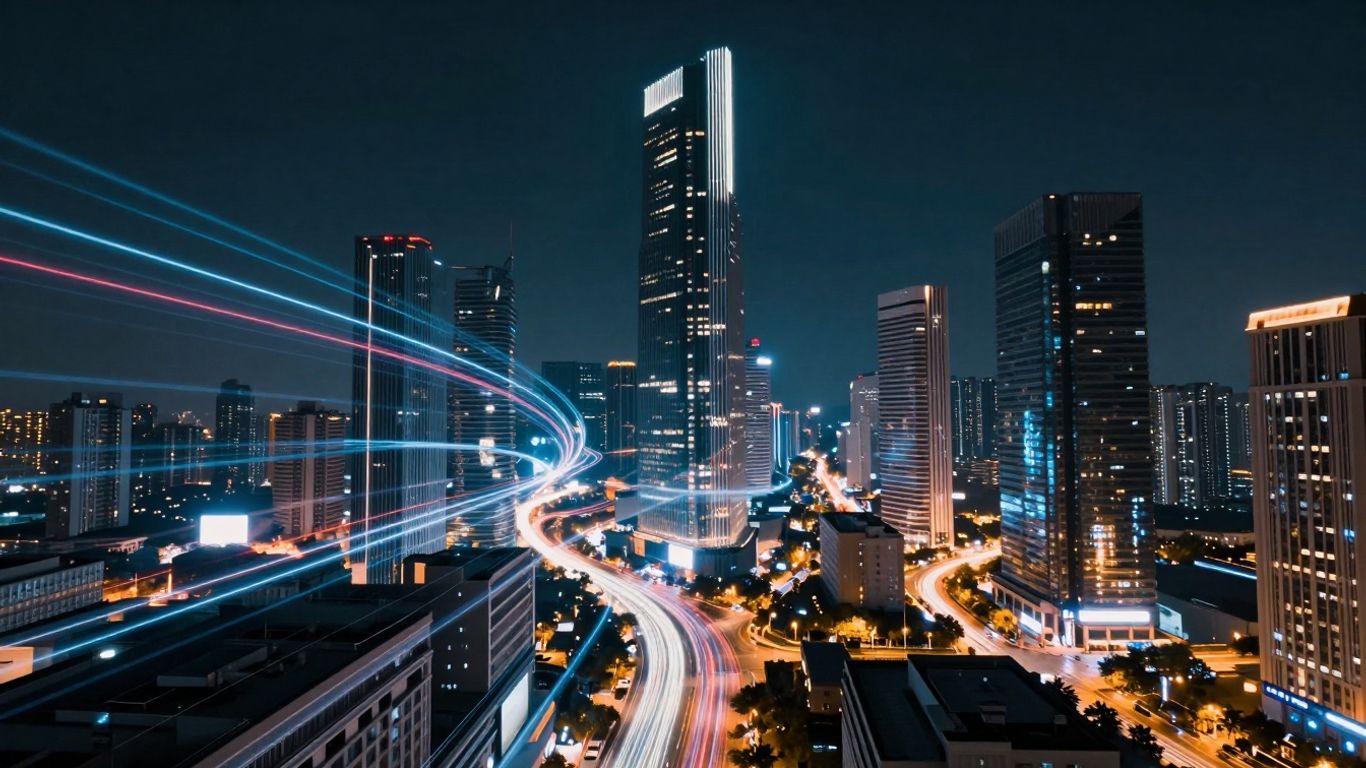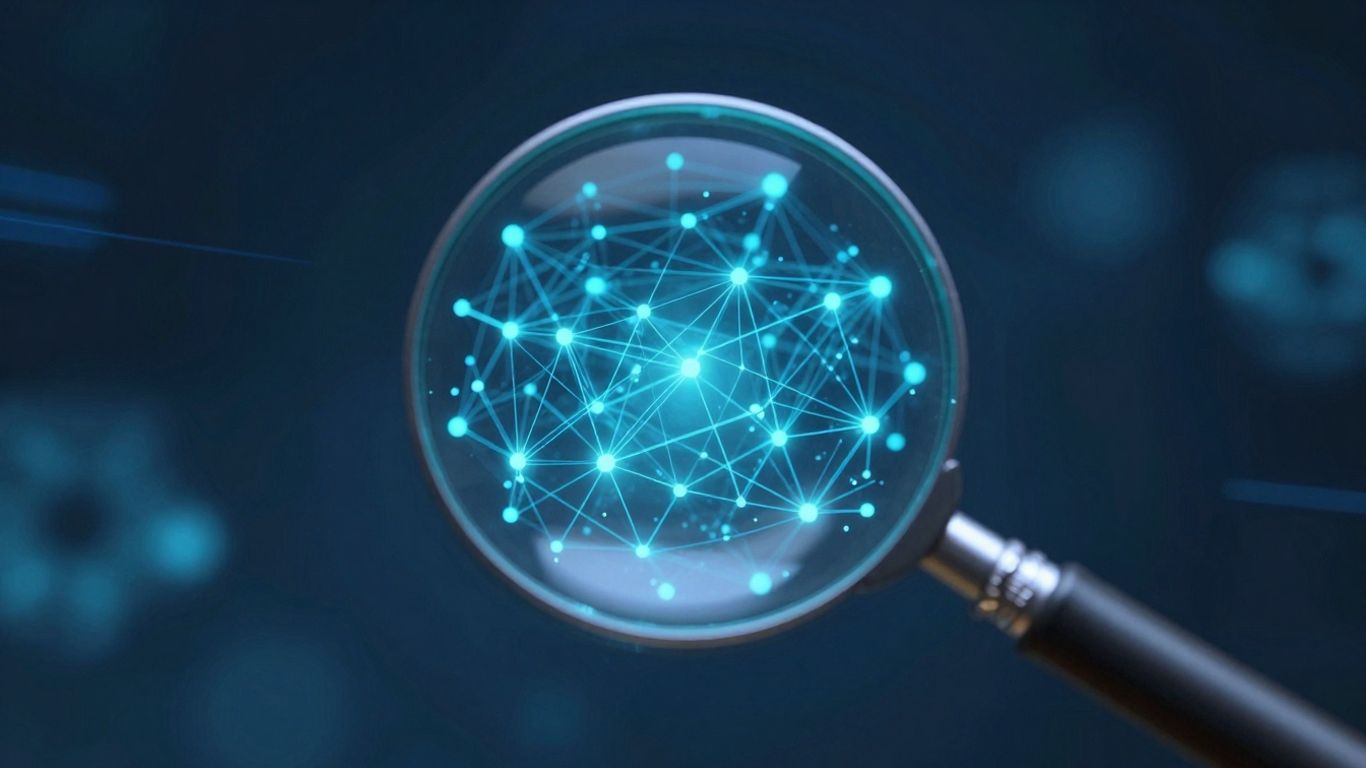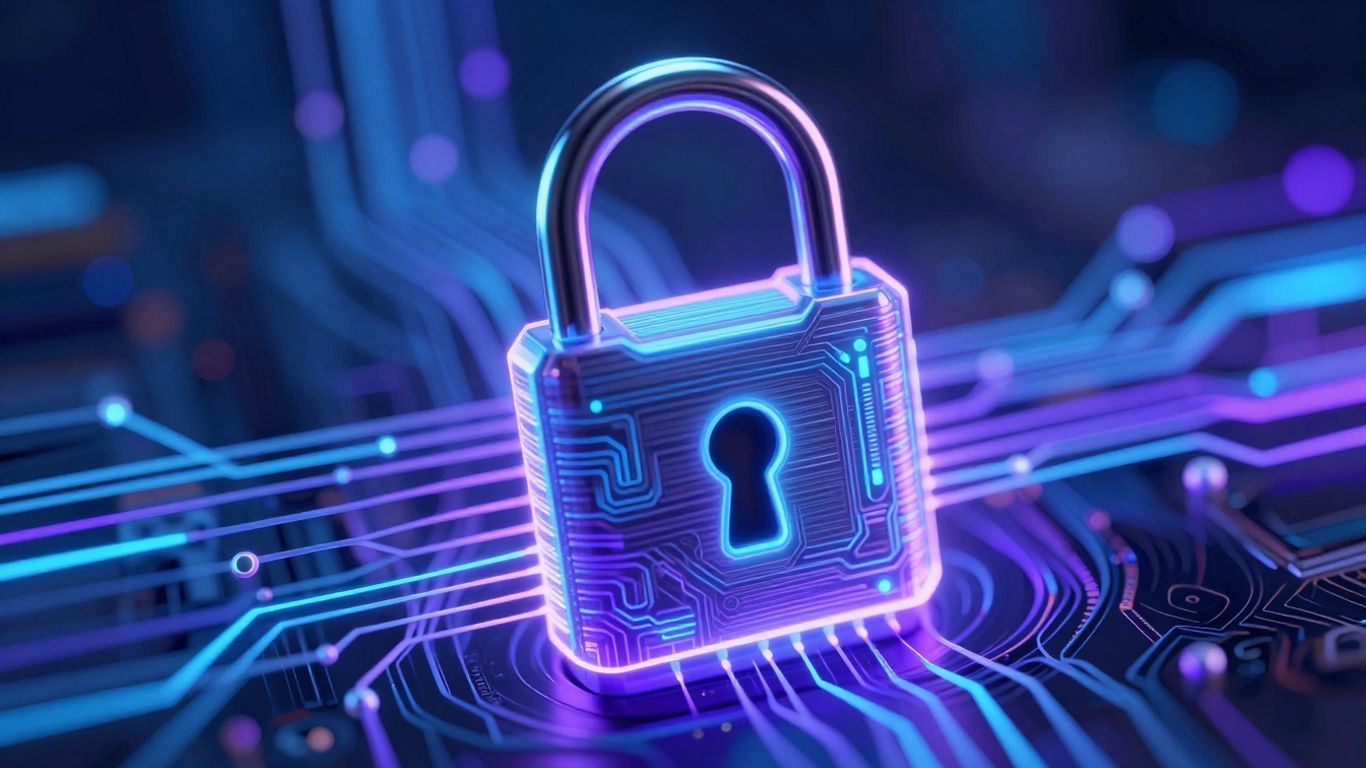[ newsletter ]
Stay ahead of Web3 threats—subscribe to our newsletter for the latest in blockchain security insights and updates.
Thank you! Your submission has been received!
Oops! Something went wrong. Please try again.
Explore multi-chain AI agents for decentralized applications. Enhance blockchain security, automate DeFi, and streamline crypto management with advanced AI.





It feels like everywhere you look these days, there's talk about AI and blockchain. They're like two big forces that are starting to really work together. We're seeing AI agents, which are basically smart programs that can do things on their own, showing up more and more in the crypto world. These agents can handle all sorts of tasks, from watching out for scams to making trades, and they're making decentralized apps (dApps) a lot more useful and secure. It's pretty interesting stuff, and it looks like it's going to change how we interact with crypto in a big way.
Think of multi-chain AI agents as super-smart digital assistants that can operate across different blockchain networks all at once. They're not just stuck on one chain; they can hop between them, gather information, and get things done wherever they're needed. This is a pretty big deal for decentralized applications (dApps) because it means these agents can handle tasks that involve multiple blockchains without you having to manually move assets or switch networks.
We're seeing a shift towards more autonomous systems in the Web3 space. Instead of just simple scripts, we now have AI agents that can make decisions and act on them. These aren't your grandma's chatbots; they're designed to perform complex tasks, manage assets, and even interact with other agents. They're like having a dedicated team working 24/7 to optimize your decentralized operations. This move towards autonomous operators is really changing how we interact with blockchain technology, making it more efficient and accessible.
What makes these agents so powerful is their ability to process vast amounts of data from various sources, including different blockchains. They can analyze market trends, identify potential risks, and then execute complex strategies based on that information. For example, an agent could monitor liquidity across several DeFi protocols, identify an arbitrage opportunity, and execute the trades automatically. This ability to interpret data and act on it is key to their utility in areas like automated trading and portfolio management. They can also be programmed with specific goals, like maximizing yield or minimizing risk, and then autonomously work to achieve them.
One of the biggest hurdles for many people getting into Web3 is the complexity. Juggling different wallets, managing private keys, and understanding gas fees across multiple chains can be overwhelming. Multi-chain AI agents can abstract away a lot of this complexity. Imagine an agent that handles your portfolio across Ethereum, Solana, and Polygon, automatically optimizing your staking rewards and rebalancing your assets without you needing to lift a finger. This kind of automation makes the user experience much smoother, allowing more people to benefit from decentralized applications without getting bogged down in the technical details. It's about making Web3 feel less like a technical puzzle and more like a user-friendly platform. For instance, tools are emerging that can help with blockchain security, making interactions safer and more straightforward.
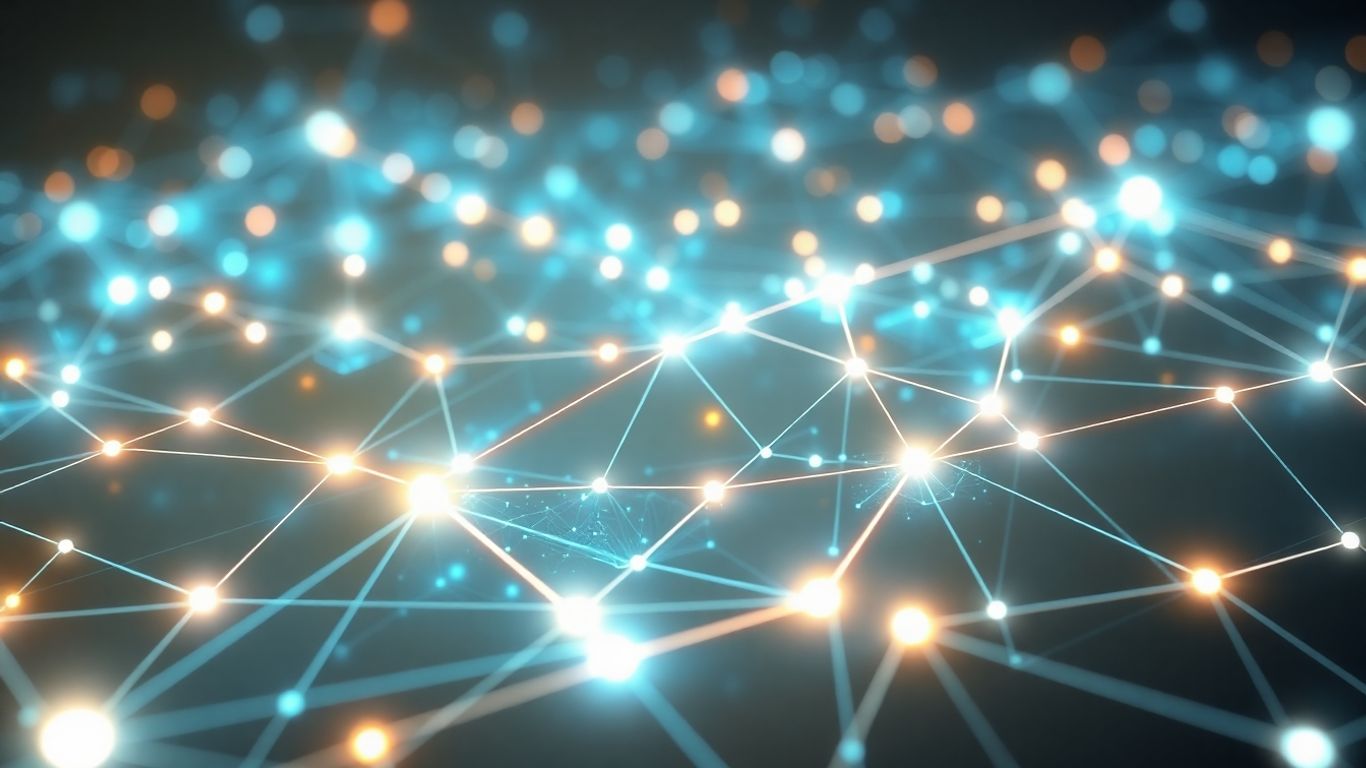
The world of blockchain is always changing, and keeping things safe is a big deal. Think about it, billions have been lost because of smart contract issues and other sneaky tricks. That's where AI agents come in, acting like digital security guards for the crypto space. They're not just about finding problems after they happen; they're designed to spot trouble before it even starts.
AI agents can sift through massive amounts of code, looking for weaknesses that human eyes might miss. They're trained on countless smart contracts and known exploits, so they can spot patterns that signal danger. What's really cool is that some of these agents can actually suggest fixes or even patch up vulnerabilities on the fly. This means projects can get their code checked and secured much faster and cheaper than traditional methods. For example, some AI models can process entire DeFi protocols in a single scan, finding issues that manual audits might take weeks to uncover.
The sheer volume of transactions and the speed at which new smart contracts are deployed mean that manual security checks simply can't keep up. AI offers a way to scale security efforts to match the pace of innovation.
Beyond just code checks, AI agents can constantly watch over blockchain networks. They look for suspicious activity, like unusual transaction patterns, potential phishing attempts, or known scam addresses. If they spot something off, they can flag it immediately, alerting users and potentially blocking malicious transactions before they cause harm. This continuous watchfulness is key in a market that never sleeps.
Getting a smart contract audited used to be a big hurdle, especially for smaller projects. It was slow, expensive, and often out of reach. AI agents are changing that. They can perform audits automatically, 24/7, and provide detailed reports with suggested fixes. This democratizes security, making professional-level checks accessible to everyone. Imagine a project launching with confidence, knowing its code has been thoroughly vetted by an AI auditor that's faster and often more thorough than traditional methods, all while costing a fraction of the price.
So, what exactly can these multi-chain AI agents do for us in the decentralized world? It's pretty impressive, honestly. They're not just simple bots; they're sophisticated operators designed to handle complex tasks across different blockchains.
One of the biggest headaches in Web3 is security, especially with so many different chains out there. AI agents are getting really good at spotting trouble before it even happens. They can monitor activity across various blockchains simultaneously, looking for patterns that suggest an attack or a scam. Think of it like having a security guard who can see into every room of a building at once, not just one hallway. This means they can flag suspicious transactions or contract interactions that might seem fine on one chain but are part of a larger, cross-chain scheme. It’s a big step up from older methods that often only looked at individual chains in isolation.
Beyond just spotting current threats, these agents can also predict what might happen next. By analyzing vast amounts of data – transaction histories, market trends, even social media chatter – they can identify emerging risks. This isn't just guesswork; it's based on machine learning models that have learned from past attacks. They can flag potential vulnerabilities in smart contracts or predict when a particular asset might be targeted. This proactive approach is a game-changer for security, allowing projects and users to prepare or even prevent attacks before they occur. It’s like having a weather forecast for cyber threats.
Your wallet is your gateway to the decentralized world, and keeping it safe is paramount. AI agents can now provide real-time risk assessments for wallet addresses. They can quickly check if a wallet has been associated with known scams, illicit activities, or even sanctioned entities. This is super useful when you're about to interact with a new smart contract or send funds to someone you don't know well. Instead of digging through block explorers yourself, an AI agent can give you a quick risk score. This helps you make more informed decisions and avoid potentially dangerous interactions. It’s a quick due diligence check that can save you a lot of trouble.
Multi-chain AI agents are really starting to change how we use decentralized applications, making things smoother and smarter. Think about how complex managing crypto can be, especially when you're spread across different blockchains. AI agents can step in to handle a lot of that heavy lifting.
DeFi is all about making financial moves, but the markets move fast. AI agents can watch these markets 24/7, spotting opportunities that a human might miss. They can analyze trends, predict price shifts, and even execute trades automatically. This means you could potentially get better returns without having to constantly stare at charts. It's like having a super-informed, always-on trading assistant.
The ability of AI agents to process complex market data and execute trades at high speeds offers a significant advantage in the volatile world of decentralized finance.
Keeping track of your crypto assets across different wallets and chains can be a headache. AI agents can simplify this by consolidating information and automating routine tasks. They can help optimize your holdings, manage staking rewards, and even handle gas fees more efficiently. This frees up your time and potentially improves your portfolio's performance.
Decentralized Autonomous Organizations (DAOs) rely on community participation for decision-making. AI agents can help streamline this process. They can monitor proposals, analyze community sentiment, and even cast votes based on pre-set guidelines or the DAO's overall goals. This can lead to more efficient and responsive governance, especially for DAOs with a large and active membership.
When we talk about AI agents in the crypto space, it's not just about fancy tech; it's about real, tangible benefits that can make a big difference. Think about how fast things move in crypto markets. Prices can jump or drop by a significant amount in just a few minutes. This is where AI agents really shine. They can process information and make trades across different systems way faster than any person could.
This speed isn't just cool; it's profitable. In markets that swing wildly, being able to act instantly means catching opportunities that would otherwise disappear. AI agents don't get tired or miss a beat. They're constantly watching and ready to execute, which is a massive advantage when every second counts. For instance, agents can help streamline user onboarding and educate newcomers on common issues like failed swaps or price slippage, all while keeping an eye out for fraud [f17d].
Humans are great, but we have our limits. Fear of missing out (FOMO), panic selling, or just plain exhaustion can lead to bad decisions. AI agents, however, operate around the clock without any of these emotional hang-ups. They stick to their programming, making rational decisions based on data, not feelings. This consistent, unemotional approach is key to navigating the often-turbulent crypto waters.
Beyond just speed, AI agents are getting really good at looking ahead. They can analyze massive amounts of data to predict market movements. This means they can act as early warning systems for potential downturns, adjust stop-loss orders based on changing volatility, and even analyze correlations to help avoid putting all your eggs in one basket. It's like having a super-powered analyst constantly working to protect your investments.
The ability of AI agents to process complex data in real-time and execute actions without human emotional interference provides a significant edge in the fast-paced cryptocurrency markets. This translates to both increased profit potential and better risk management for users and organizations alike.
Here's a quick look at what AI agents bring to the table:
These advantages are fundamentally changing how we interact with decentralized applications and manage digital assets.
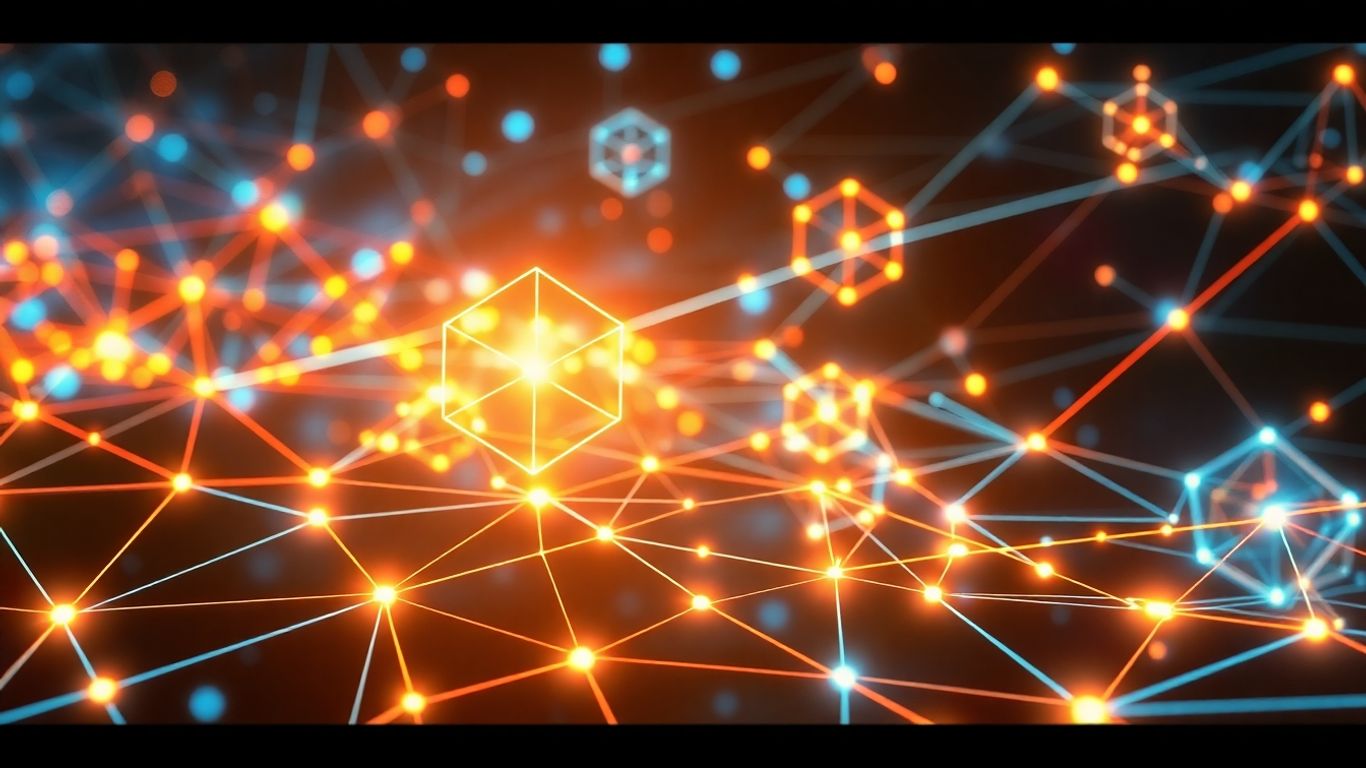
The way we interact with blockchain is changing, and it's happening fast. Gone are the days when you needed to be a coding wizard or a data analysis guru just to make a simple transaction or check your portfolio. AI agents are stepping in to handle a lot of the heavy lifting, making things way more accessible for everyone.
Think about it like this: instead of you digging through complex dashboards and trying to figure out what all the numbers mean, you'll just tell your AI agent what you want. It'll then go and do the work, pulling data from different blockchains, analyzing it, and giving you a clear answer. This is a big deal because it means more people can get involved in decentralized applications without needing a steep learning curve. It's like having a personal assistant for your crypto life.
We're moving towards a future where humans don't directly use software as much. Instead, we'll use AI agents, and those agents will use the software. This creates a whole new way of interacting with systems. Imagine asking your agent to find the best yield farming opportunities across multiple chains. It would then talk to different DeFi protocols, gather the necessary information, and present you with the optimal choices. This agent-to-agent communication is key to automating complex tasks and making decentralized finance more efficient.
AI agents are already starting to take over many financial tasks on the blockchain. They can manage portfolios, optimize staking rewards, and even execute trades automatically. This means faster transactions, better decision-making based on data rather than emotion, and potentially higher returns. For instance, an agent could constantly monitor market conditions and automatically rebalance your portfolio to minimize risk and maximize gains. This 24/7 operation is something humans just can't replicate.
It's not just about finance, either. AI agents are set to transform other areas like gaming and entertainment on the blockchain. Think about in-game economies where agents manage digital assets, facilitate trades, or even act as non-player characters (NPCs) with complex behaviors. This could lead to more dynamic and engaging experiences. For example, an agent could manage the marketplace for digital collectibles, ensuring fair pricing and smooth transactions, or an agent could run a decentralized autonomous organization (DAO) for a gaming guild, handling proposals and voting automatically based on community sentiment.
Here's a quick look at how agents are changing things:
The shift towards agents handling complex on-chain tasks is making the blockchain world more accessible and efficient. It's about simplifying interactions and letting AI do the heavy lifting, so users can focus on the bigger picture.
So, we've talked a lot about how these AI agents can really help out in the Web3 space, especially when it comes to security. Think about it – having AI that can spot problems in smart contracts before they cause trouble, or even fix them automatically. It’s like having a super-smart security guard for your digital assets, working 24/7. Plus, making things like audits faster and cheaper means even small projects can get the protection they need. It’s not just about catching bad guys; it’s about building a more trustworthy and stable environment for everyone involved. As this tech keeps getting better, we’re likely to see even more cool uses for it, making the whole decentralized world a bit safer and easier to navigate.
Think of multi-chain AI agents as smart computer programs that can work across different blockchain networks all at once. They're like digital helpers that can understand information, make decisions, and carry out tasks on various blockchains without needing a person to tell them what to do every single step of the way.
These AI agents are really good at spotting potential problems or dangers in blockchain systems before they can cause harm. They can constantly watch for suspicious activity, automatically fix certain issues, and even help with checking if smart contracts are safe and sound, making the whole system more secure.
These agents have some cool abilities! They can look for threats that might spread across different blockchains, predict what kind of dangers might pop up in the future, and even quickly check if a digital wallet might be risky to interact with.
They can help make things like trading digital money much smarter and faster by analyzing markets automatically. They can also help manage your collection of digital assets more easily and even help run organizations on the blockchain by automating voting and other tasks.
AI agents can work super fast, especially when the crypto market is changing quickly. They don't get tired or make emotional decisions like humans do, which can lead to better results. Plus, they can help reduce risks by predicting problems before they happen.
In the future, we'll see AI agents talking to each other and to people more often. They'll likely become very important for handling money and other activities on the blockchain. We might even see entire systems, like games or entertainment platforms, being run by these AI agents.
